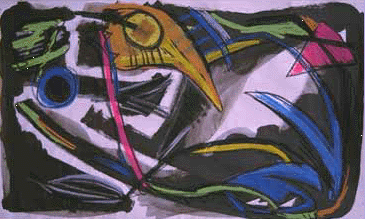Detailed Information

Mature engineering disciplines have handbooks describing solutions to
known problems. Bridge designers don't design bridges using the laws of
physics, they adapt solutions from the handbook known to work well enough.
Patterns can be the basis for a handbook of software engineering. They
encode core solutions to problems known to arise while building systems.
A complete pattern language would guide developers to produce workable
software solving ordinary problems.
The PLoP™ Conference Series
The PLoP™ conference series invites you to add your expertise to the growing
body of patterns. The conferences' focus is on improving the expression
of patterns. You will have the opportunity to refine and extend your patterns
with help from knowledgeable and sympathetic fellow pattern enthusiasts.
EuroPLoP™ is the European member of the
PLoP™ conference family. Other
conferences in the PLoP™ series include
(US) PLoP™, ChilliPLoP™,
and KoalaPLoP™.
Core Program: Writer's Workshops and Pattern Writing
Workshops
Both PLoP™ and EuroPLoP™
follow a different format than other conferences
such as OOPSLA. The goal is to give pattern authors as much feedback as
possible on their work. We want other authors to tell you what they think
about your patterns, what additional insights and views they have. Every
pattern and pattern language is discussed this way.
There are two kinds of workshop. "Writer's Workshops" are adopted from
reviewing poetry and take the form of a peer review amongst all the authors
participating. "Pattern Writing Workshops" on the other hand offer the
chance for pattern authors to work on the form and content of their pattern
in a mutual session with an experienced author instead of a group.
All aspects of software systems are suitable topics for submitted patterns
or pattern languages. We invite patterns on programming, software design,
project management, education, and so on. The actual subjects of patterns
need not be original. Rather, preference will be shown to authors best
able to exploit patterns in all areas of computing. Have a look at last
year's program to get a feeling for the diversity of patterns submitted.
Focus Groups
Besides the core program we have additional sessions to present and discuss
the current state of work on patterns. 'Focus groups' consist of a number
of workshops, organised around a common theme, to be proposed by attendees.
A workshop lasts two hours and is intended to be an intensive collaborative
sessions where groups of interested people meet to discuss challenging
topics in this area. Two themes we're particularly interested in receiving
submissions for are:
-
Research and Experience Theme. This theme looks at the issues of
patterns in research. 'Research and experience' can mean a project in industry
or academia that uses patterns, is intended to produce patterns, or focuses
on research on patterns themselves.
-
Interdisciplinary Theme. Patterns and similar concepts are used
in many disciplines other than software (with the classic example being
building architecture). At this year's EuroPLoP™ we particularly invite
proposals for workshops looking to learn from experiences of finding and
applying patterns in other disciplines. These workshops could span all
areas of creativity, from less obvious areas of computing, to other areas
of science and engineering, and beyond. Examples might be artificial intelligence,
chemistry, mechanical engineering, music, and film making.
Right Brain ActivitiesOne of the unique features of the PLoP™ series of
conferences is the emphasis we place on non-technical, right-brain activities.
We try to create an environment that excercises the parts of the mind and
body that have nothing at all to do with developing software but have everything
to do with finding and writing patterns (whether they are software patterns
or any other kind). These other activities include:
-
Games. Morning and Afternoon Games (every day).
Led by our 'Querdenker-Koordinator', George Platts, these non-competative
games are one of the highlights of EuroPLoP™. Many new friendships have
been founded whilst untying human knots or making a 5m high 'mushroom'!
-
Art Studio. Also hosted by George, the art
studio is opened thoughout most of the day. Many different materials are
available for anyone to go and relax, to be creative, and to listen to
music.
BOF Sessions
'Birds of a Feather' sessions are spontaneous events, organized on site.
Every attendant may call for a BOF session. Contents and format of a BOF
session is up to the group joining the session. Please contact the conference
chairs during the conference (or before hand if you wish) to start a BOF
session.
Special Sessions
-
Welcome session. This is the first session
of the conference. It will outline other session activites as well give
everyone a chance to meet each other.
-
Daily summary. A final session at the end
of each day that gives everyone a chance to find out what went on in the
sessions they couldn't attend plus any other news.
-
Farewell Session. Lead by George Platts,
this session is the traditional show-down of the conference. Get latest
information about publication and other hot topics - and don't miss the
opportunity to say farewell to all the friends you have made or met.
Conference Fee
The conference fee will be 800 EUR.
This looks interesting ... I would like to come
Please check the registration page.
This looks interesting ... but I am a student
Contact Andreas Rüping for information
on special arrangements for students (on a first come, first served basis)
Can I bring my children? My kids like to play games too!
EuroPLoP™ wants to be a family-friendly conference. Children participate
in the games, art workshops, and social activities. Probably we will also
provide professional childcare during the workshop hours (with insurance).
If you plan to bring your children, please contact Andreas
Rüping.

